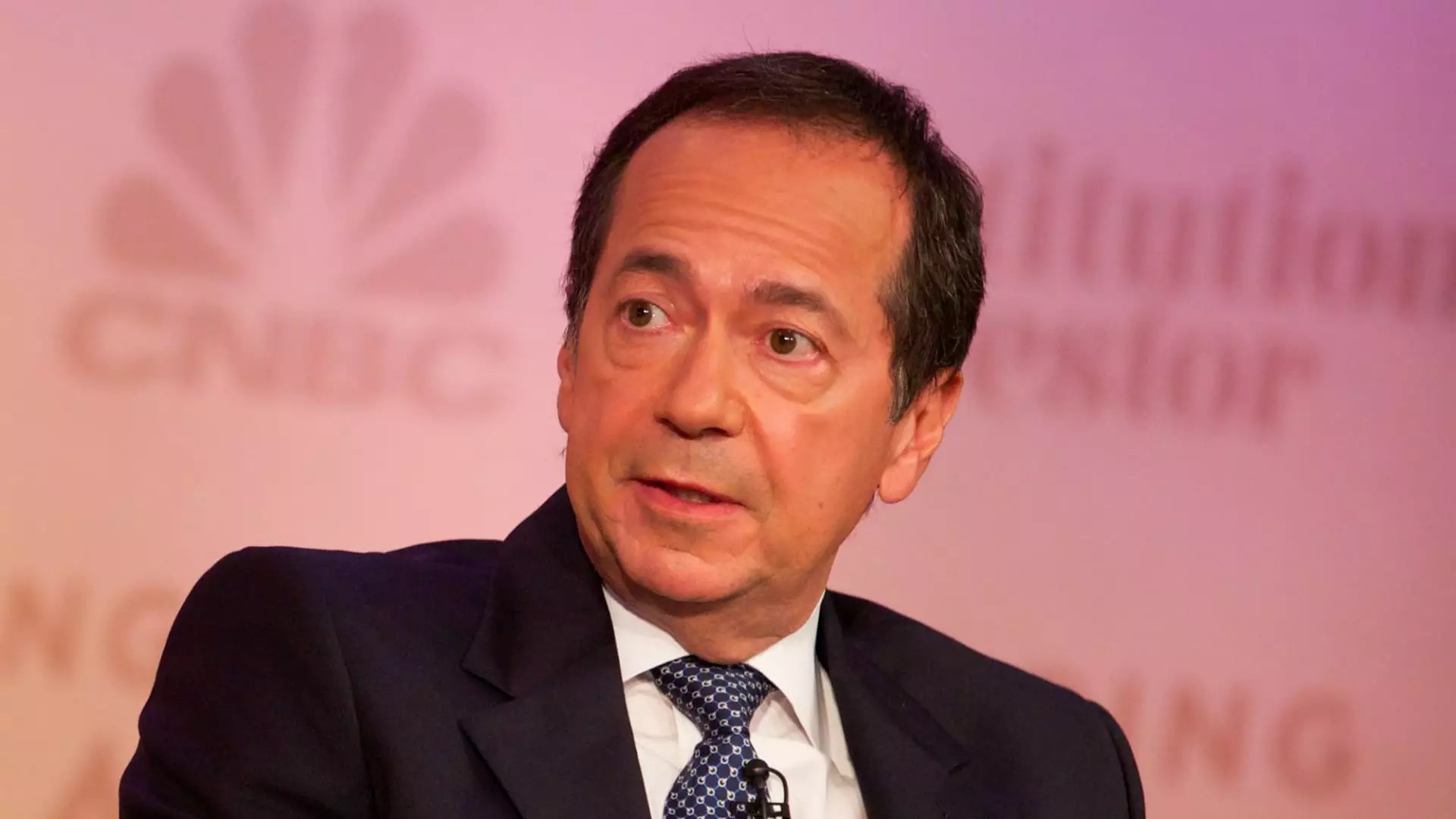In the realm of finance, few figures are as prominent—or as polarizing—as hedge fund legend John Paulson. Renowned for his audacious bet against the housing market during the 2008 financial crisis, Paulson has since carved a niche not only as a financial titan but also as a vocal supporter of former President Donald Trump. His latest musings, particularly around Vice President Kamala Harris’s proposed tax plans, have sent ripples through the financial community, raising questions about the potential repercussions on the economy if these policies come to fruition.
Paulson recently articulated his fears regarding proposed tax increases under a Biden-Harris administration, which would impact corporate tax rates and capital gains significantly. The suggested hike in corporate tax from 21% to 28%, coupled with a steep increase in capital gains tax from 20% to a staggering 39%, has left many in the finance world pondering the implications. Paulson pointedly remarked that these measures could trigger a “crash in the markets,” a bold assertion that underscores the tension between fiscal policy and economic health.
Beyond the immediate concerns about corporate taxation, the proposed tax on unrealized gains—particularly for wealthy households—has emerged as a flashpoint in the debate. Though Harris’s campaign team has reportedly distanced itself from this specific policy, the potential for such a tax looms large in Paulson’s predictions. He argues that taxing unrealized gains would prompt a tsunami of selling across various asset classes, including stocks, real estate, and even collectibles like art, thus catalyzing a swift downturn in the economy.
Paulson’s credibility on this matter is rooted in a historical context of acute market awareness. His financial acumen became evident during the housing crisis when he successfully navigated the treacherous waters of mortgage-backed securities with credit default swaps, ultimately amassing a fortune. Given this background, his current cautionary stance regarding potential tax policies should not be dismissed lightly.
However, historical context also serves as a reminder of the volatility inherent in market predictions. Financial markets are influenced by a multitude of factors—global economic conditions, consumer confidence, and geopolitical events, to name a few. While Paulson warns of imminent disaster should Harris’s tax plans be enacted, not all analysts share his gloom; some have suggested that the anticipated tax increases may not severely impact market trajectories. Despite Paulson’s prominence, the market’s reaction to policy shifts is often more nuanced than one individual’s predictions.
Moreover, Paulson’s assertions are enmeshed in the broader economic landscape shaped by past and present administrations. While he positions Trump’s potential economic policies as favorable, particularly regarding tariffs and tax cuts, critics argue that such measures could also exacerbate inflation and lead to a growing budget deficit.
In this context, it’s essential to assess the juxtaposition of Paulson’s views against those of other leading economists. While some Wall Street analysts resonate with concerns about corporate tax hikes impacting profitability and earnings, many do not foresee a catastrophic collapse akin to Paulson’s forecasts. Instead, they suggest that markets could adjust to new realities, incorporating these changes gradually rather than experiencing an abrupt and devastating shock.
As the political landscape evolves and economic policies come into sharper focus, the insights and warnings from figures like John Paulson deserve attention, even if they invoke skepticism. The potential ramifications of the Biden-Harris tax proposals could indeed have noteworthy implications for market dynamics and economic stability. Nevertheless, it is crucial to maintain a balanced perspective, recognizing that markets are complex systems influenced by a multitude of converging forces.
In the end, while Paulson’s concerns herald a significant moment in financial discourse, they also serve as a stark reminder of the unpredictability of economic forecasting. Thus, the focus should remain not only on the potential perils posed by taxation but also on fostering constructive dialogue around achieved policy outcomes that aim for sustainable economic growth. The discourse is bound to continue as America grapples with the fine line between equity and economic vitality.


Leave a Reply